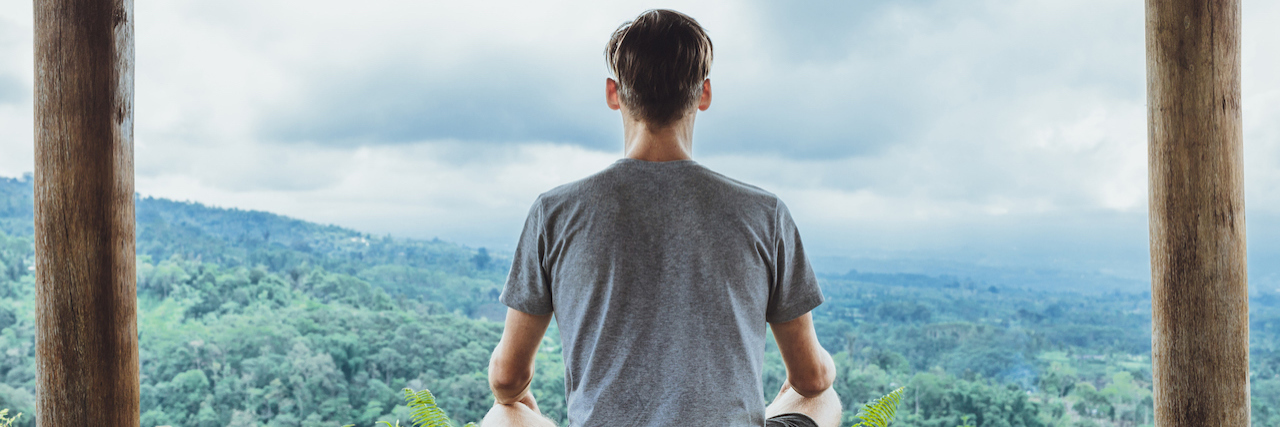Something I have noticed recently in the West: meditation is prescribed for everything from mental health to career direction to cancer.
While meditation has shown to have positive effects and is no doubt a useful tool and spiritual practice, it does have its limitations — and even some risks. Let’s explore these below:
Meditation can be difficult.
For myself included, meditation can be challenging — it certainly has that quality of wanting to make you jump out of your skin. Many people I know find it very hard to sit and just be with their thoughts, breath or body, particularly if they have experienced trauma or have post-traumatic stress disorder.
Meditation can take a long time to master.
I have one friend who says he gets profound insights from meditation. While I am happy that he gets these results, let’s just consider the following for a moment:
- He’s pretty much a full-time Buddhist.
- He’s meditated for 10+ years.
So yes, I am sure it does get more comfortable — and like anything, practice makes permanently better. However, most of us do not have 10 years or time to be a full-time Buddhist (nor do we perhaps want to be).
Extensive meditation can cause depersonalization.
Studies show that meditation has been shown to cause depersonalisation/derealisation, which can be a strange, and frankly, frightening experience, where life does not feel “real” and takes on a very dream-like quality. It’s like being awake, only you do not feel awake, and you cannot do magical things like ride dinosaurs and surf clouds as you can in the actual dream world. Sadly, some meditation retreats are irresponsibly intense and do not have much in the way of “integration” back into reality.
Extensive meditation can cause intense mental health symptoms.
I remember how when I told one woman I was struggling with burnout symptoms and needed time off, she adamantly advised me to go on a 10-day silent meditation retreat where you meditate for 12 hours a day. I told her, “That sounds quite intense and doesn’t sound very healthy to me!” We then ended up having a long debate, to which she concluded with, “Don’t judge it until you try it,” to which I replied, “Well you could use that same argument with hard drugs — are you going to try them?”
In any case, remember that Buddhist friend I mentioned? Well, he said that his particular Buddhist community was against such intense retreats as they have been known to cause mental breakdowns. Whilst some argue, “That’s because they needed to release trauma,” it should be noted that trauma should be touched gently and in small doses. As my trauma therapist says: “When it comes to trauma, less is more”.
Thus, meditating for 10 hours has the potential to open up old trauma and unless there is a process for grounding and integration, it could leave one feeling incredibly detached from reality. There have been numerous reports of adverse mental health effects lasting for years following attendance at a meditation retreat.
Some alternatives:
Most people want a quick-fix to their problems, and so assume that because small doses of meditation can be beneficial, it’s going to fix their life faster. Spending time in a relaxing jacuzzi can definitely be beneficial. But is it healthy to spend 10 hours in it? Probably not. So what are some alternatives?
Mindfulness — One option for stress reduction is mindfulness. “Wait, isn’t that the same as meditation?” Well, no, not exactly. You can practice mindfulness anywhere: walking, eating, showering, etc. I personally like to practice it in the spa. I like to feel the sensation of the jacuzzi streams, the way my body relaxes in the steam room in the heat, the cool pool water. Tuning into physical sensations is a wonderful and healthy way to relax.
Prayer — Another option is prayer. I have personally witnessed and experienced the power of prayer causing rapid healing for trauma.
Life Coaching — As for rapid insights and growth, life coaching is another option. Depending on the modality and the skill of the practitioner, this can be incredibly powerful to discover what unconscious beliefs and behaviors might be holding you back. You also do not have to be spiritual and it won’t take you years to master!
Meditation can be a useful tool and has some benefits as well as limitations (many find it difficult) and it should be used moderately and appropriately, and definitely not intensely.
This article was originally published on nickhatter.com
Getty image via boyarkinamarina

